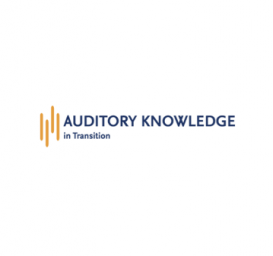The international and interdisciplinary research network, “Auditory Knowledge in Transition: An Epistemic History of Listening in Modernity,” funded by the German Research Council, was comprised of fifteen scholars from Germany, Great Britain, the Netherlands, Switzerland, and the USA.
The central, guiding question of the network’s research was the role of hearing or listening in modern cultures of knowledge. Modernity has long been regarded as a visual age. In recent years, newly emerging scholarship in the field of sound studies has shown in myriad ways that hearing/listening is of central importance in modern times. These works have, however, focused their inquiry mainly on the various cultural forms of hearing of the late twentieth- and early twenty-first centuries. In contrast, “Auditory Knowledge in Transition” extended the historical perspective as far back as the early modern period to explore the epistemic status of hearing/listening in modernity. The network embraced a broad concept of knowledge, one including implicit and performative knowledge, in order to ask what types of auditory knowledge can be historically reconstructed and what features of hearing/listening are included in processes of knowledge production and communication. The network sought to mobilize these questions to investigate what forms of auditory knowledge can be found in the sciences, music, performing arts, literature, philosophy, and politics. Through these inquiries, the network was able to historicize the central concepts and assumptions of sound studies and problematize the hypothesis of a “hegemony of the visual” in the intellectual history of modernity.

